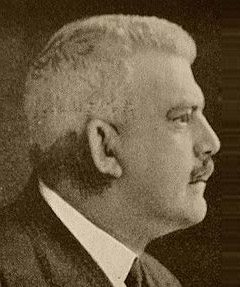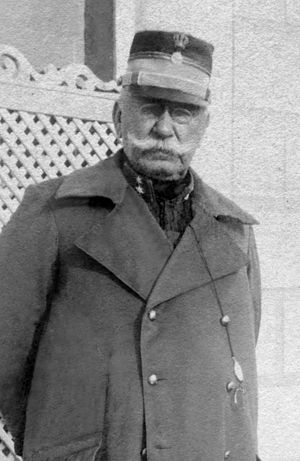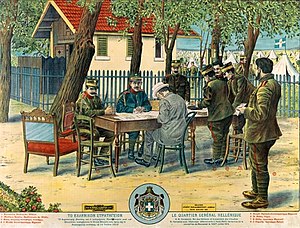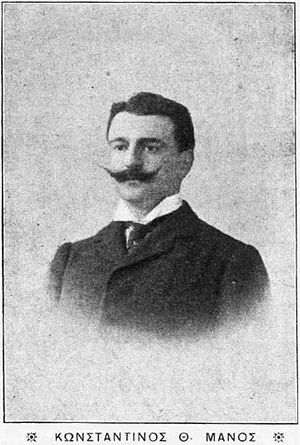Discover Your Roots
SIGN UPDiscover Your Roots
SIGN UPKonstantinos is a male name of Greek origin, meaning "Constant" and "Loyal". This name has a strong and enduring quality, reflecting the attributes of constancy and faithfulness. Famous individuals bearing the name include Konstantinos Karamanlis, a former Prime Minister and President of Greece, and Konstantinos Tsiklitiras, an Olympic gold medalist. The name Konstantinos has a rich historical and cultural significance in Greece, with notable figures in politics, sports, and the arts. Its association with steadfastness and loyalty makes it a popular choice for parents seeking a name with enduring and noble qualities. Additionally, variations of the name, such as Konstantine and Costas, provide diverse options for those drawn to its meaning and heritage.

Konstantinos Demertzis (Greek: Κωνσταντίνος Δεμερτζής) was a prominent Greek academic and politician who served as the 49th Prime Minister of Greece from November 1935 until his untimely death in April 1936. Born in Athens in 1876, Demertzis pursued his education at the Law School of the University of Athens, obtaining a doctorate in 1896. He later became a distinguished professor of law, contributing significantly to the academic and political arenas in Greece.Demertzis embarked on his political career in 1910 when he was elected as a Member of Parliament with the Liberal Party, playing a key role in the revision of the Constitution in 1911. He held various ministerial positions, including Minister of Marines and Minister of the Navy, before founding the "Unionist Progressive Party" in 1924. Following a hiatus from politics, he was called upon by King George II to assume the role of prime minister in 1935.During his tenure as prime minister, Demertzis sought to stabilize the political landscape and oversee orderly elections. However, his leadership was tragically cut short when he passed away from a heart attack on April 13, 1936. His legacy and contributions to Greek politics and academia continue to be remembered and celebrated.Konstantinos Demertzis' indelible mark on Greek history and politics remains a

Konstantinos Kolokotronis, born around 1745, was a prominent Greek klepht leader in the Peloponnese during the 18th century. He was the father of Theodoros Kolokotronis, a key figure in the Greek War of Independence. Konstantinos initially served as an armatole under Halil Bey in Corinth, where he developed strategic alliances and amassed considerable influence. His aspirations to drive the Turks out of the Peloponnese led him to establish a fort with the help of klepht Panagiotaros. Konstantinos played a pivotal role in the Orlov Revolt, engaging in battles against the Turks and leading successful ambushes. He inspired thousands of Greeks to join the resistance as klephts. However, his defiance against the Ottoman forces ultimately led to his demise. After a valiant stand at the Siege of Kastania in 1780, he succumbed to fatal wounds inflicted by the enemy. Despite his tragic end, his legacy lives on as a symbol of Greek resistance and bravery. His remarkable exploits and unwavering determination continue to inspire generations.

Konstantinos Sapountzakis (Greek: Κωνσταντίνος Σαπουντζάκης; c. 1846–1931) was a distinguished Hellenic Army officer, known for his pivotal roles in the military. He made history as the inaugural head of the Hellenic Army General Staff and as the primary commander of the Army of Epirus during the First Balkan War. Sapountzakis' illustrious career began when he graduated from the Hellenic Army Academy and steadily progressed through the ranks, showcasing his expertise and leadership capabilities. His contributions during the Greco-Turkish War of 1897 and the First Balkan War demonstrated his strategic acumen and dedication to his country.In addition to his military achievements, Sapountzakis held significant positions within the Ministry for Military Affairs, contributing to the reorganization and development of the Greek Army. His leadership and commitment were further exemplified when he assumed command of the Army of Epirus, leading his forces through challenging battles and ultimately contributing to the capture of Ioannina.After his distinguished service, Sapountzakis retired from the Army and continued to serve his nation in various capacities. His legacy lives on as a symbol of dedication and valor in Greek military history.References:1. Συνοπτική Ιστορία του Γενικ

Konstantinos Pallis (Greek: Κωνσταντίνος Πάλλης; 1871–1941) was a distinguished staff officer of the Hellenic Army, known for his pivotal roles during the Greco-Italian War of 1940–41 and the conflict in Asia Minor. Born in Athens on March 5, 1871, Pallis began his military career after graduating from the Hellenic Military Academy. Throughout his service, he demonstrated exceptional leadership and strategic acumen, earning promotions to various ranks, including major general and lieutenant general.Pallis' career was marked by significant assignments, such as serving as the chief of staff to the Army of Asia Minor and later as the Minister Governor-General of Macedonia. His tenure as Chief of the Field Army General Staff during the Greco-Italian War showcased his expertise and dedication to the Hellenic Army.Regrettably, Pallis passed away in 1941 at the age of 70, leaving behind a legacy of unwavering commitment to his country and a remarkable military career. His contributions continue to be remembered and celebrated within the annals of Greek military history.

Konstantinos Manos (Greek: Κωνσταντίνος Μάνος; 1869–1913) was a multifaceted Greek personality, known for his roles as a politician, poet, soldier, and sportsman. He was born in Athens in 1869 to Thrasyvoulos Manos, a military officer from a Phanariot family, and Roxani Mavromichalis, a member of the Mavromichalis family. Manos studied law in Leipzig and philosophy in Oxford, and his endeavors included teaching Empress Elisabeth of Austria. He was instrumental in organizing the first modern Olympic Games in Athens and was the founder of the Athens Athletic Club. Manos also played a significant role in various military and political activities, including the Cretan Revolution, the Macedonian Struggle, and the Goudi Coup. He served as the mayor of Chania and led a corps of Cretan volunteers during the First Balkan War, but tragically lost his life in 1913 when his plane crashed during a reconnaissance flight. Despite his short life, Manos left a literary legacy with his collection of poems titled "Words of the Heart," which received recognition in the Philadelphia competition. His dedication to sports was evident through his contributions to the Olympic Games and his efforts to promote amateurism. Konstantinos Manos' impactful life and contributions continue to be remembered and honored.
All images displayed on this page are sourced from Wikipedia or Wikimedia Commons.We use these images under their respective Creative Commons or public domain licenses. Wherever applicable, author attributions and license information are provided. If you believe an image is used incorrectly or outside its license terms, please contact us so that we can review and correct the issue.